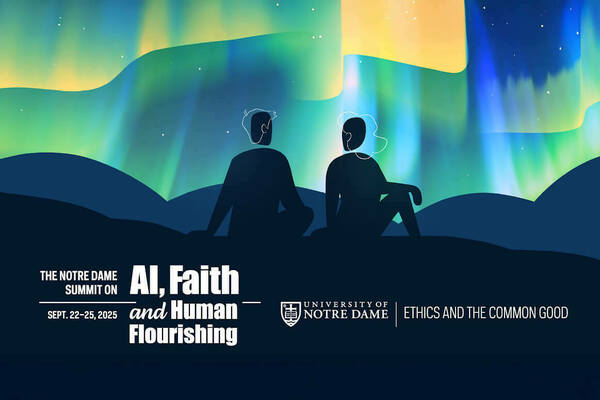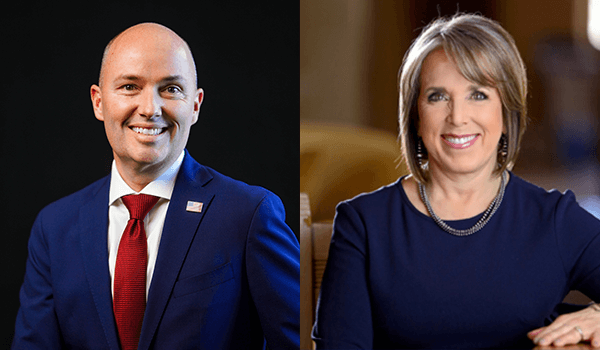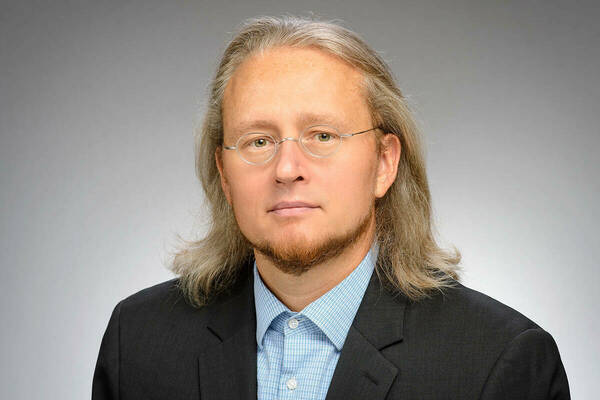Opponents, exonerees to take part in inaugural Death Penalty Abolition Week at Notre Dame
Notre Dame Law School will host Death Penalty Abolition Week from Monday to Thursday (March 24 to 27) at the University of Notre Dame, featuring a series of talks from exonerees and opponents of the death penalty.
Hosted by the Notre Dame Law School Exoneration Justice Clinic and the Klau Institute for Civil and Human Rights, the four-day inaugural event aims to raise awareness of the miscarriages of justice caused by wrongful convictions, the systemic issues leading to these injustices and the complex intersection between wrongful convictions and the death penalty.
Co-sponsors include the Notre Dame chapter of the American Civil Liberties Union, the Black Law Students Association, the Exoneration Project and the Death Penalty Abolition Society.
“To date, 200 death row inmates have been exonerated,” Jimmy Gurulé, professor of law and director of the Exoneration Justice Clinic, said. “These individuals were wrongfully convicted of capital murder and sentenced to death. But for the work of innocence projects, law school clinics and pro bono lawyers, these individuals could have been tragically executed by the state for a crime they did not commit. I can’t imagine a more compelling argument for the abolition of the death penalty.”
The schedule is as follows:
Monday (March 24)
• Yusef Salaam, Central Park Five exoneree and New York City councilman, “Delayed but not Denied,” 12:30 to 1:45 p.m., Eck Hall of Law, Room 1130
At 15, Yusef Salaam was wrongfully convicted along with four others in the Central Park jogger case. The “Exonerated Five,” as they are now known, spent between seven and 15 years in prison, until their sentences were overturned in 2002. Since then, Salaam has become an advocate for criminal justice reform, the impact of mass incarceration and police brutality, and the abolition of juvenile solitary confinement and capital punishment.
He will share his personal story and discuss the impact of wrongful convictions, shedding light on the profound emotional and social toll on both individuals and their families.
Tuesday (March 25)
• Ohio death row exoneree Lamont Hunter and his attorney, Erin Barnhart, 12:30 to 1:45 p.m., Eck Hall of Law, Room 1130
Notre Dame alumna Erin Barnhart is the assistant federal public defender for the Southern District of Ohio’s Capital Habeas Unit, where she represents death row inmates in federal habeas and attends to civil rights litigation and state clemency matters. Barnhart graduated summa cum laude from Notre Dame Law School in 2005, where she was an editor of the Notre Dame Law Review and earned the Farabaugh Prize for High Scholarship in Law.
Lamont Hunter spent nearly 18 years on Ohio’s death row. He was convicted and sentenced to death in 2007 on charges related to the death of his 3-year-old son, Trustin, who suffered fatal injuries after accidentally falling down the stairs.
During habeas proceedings, defense counsel discovered exonerating evidence, and Hunter was granted a motion for a new trial. To obtain his freedom, he pleaded guilty to lesser charges and was sentenced to time served. Since his release in 2023, he has been rebuilding and reconnecting with his family and community while sharing his story of wrongful incarceration and insight into the U.S. criminal legal system.
Hunter will discuss his journey from wrongful conviction to freedom, while Barnhart will highlight the critical role of legal advocacy in challenging injustice and securing fair outcomes.
Wednesday (March 26)
• Syl Schieber, “When the Death Penalty Gets Personal,” 12:30 to 1:45 p.m., McCartan Courtroom, Eck Hall of Law
Notre Dame alumnus Syl Schieber became a staunch opponent of the death penalty after his daughter, Shannon, was murdered in 1998. When Philadelphia’s district attorney announced her intent to seek the death penalty for the murderer, Schieber and his wife, Vicki, led a successful campaign against pursuing capital punishment in the case.
Schieber’s opposition to the death penalty has been deeply motivated by his Catholic faith and belief in the sanctity of human life.
Schieber, who holds a doctor of philosophy in economics from Notre Dame, will recount his personal journey and reflect on the decades of tireless advocacy that he and his wife have championed to abolish the death penalty in the United States.
Thursday (March 27)
• Sister Helen Prejean, “The Sanctity of Life,” 12:30 to 1:45 p.m., McCartan Courtroom, Eck Hall of Law
Sister Helen Prejean, a leading voice for the abolition of the death penalty, has dedicated her life to advocating for human dignity. After witnessing multiple executions, she became a fierce critic of capital punishment. Her book, “Dead Man Walking: An Eyewitness Account of the Death Penalty in the United States,” exposed the brutal realities of capital punishment and sparked a nationwide movement.
Over the decades, Sister Prejean appealed to two popes, John Paul II and Francis, urging the Catholic Church to oppose the death penalty unequivocally. Following their meeting in August 2018, Pope Francis announced new language in the Catholic Catechism declaring the death penalty inadmissible as an attack on human dignity.
Sister Prejean will share her journey of faith and activism, discussing the impact of her work in the fight to end the death penalty.
Seating for the talks is limited. Advanced registration is available here.
Latest ND NewsWire
- Notre Dame to host summit on AI, faith and human flourishing, introducing new DELTA frameworkThe Institute for Ethics and the Common Good and the Notre Dame Ethics Initiative will host the Notre Dame Summit on AI, Faith and Human Flourishing on the University’s campus from Monday, Sept. 22 through Thursday, Sept. 25. This event will draw together a dynamic, ecumenical group of educators, faith leaders, technologists, journalists, policymakers and young people who believe in the enduring relevance of Christian ethical thought in a world of powerful AI.
- Notre Dame Democracy Initiative hosts bipartisan conversation with Western state governorsTwo Western state governors known to work across the aisle on policy issues such as water, housing and energy will visit the University of Notre Dame for a fireside chat about how Western state pragmatism can serve as a model for the country to overcome polarization.
- In new research, Roy Scranton explores climate change and the limits of human progressIn his most recent book, “Impasse: Climate Change and the Limits of Progress,” Scranton, an associate professor of English, defines the impasse he sees as “not only political and institutional, but cognitive, existential and narrative” and asserts that the only path forward is through embracing what he terms ethical pessimism. “A lot of people confuse pessimism with nihilism, apathy and despair,” Scranton said. “But pessimism is actually about recognizing our limits, letting go of unrealistic goals, finding solidarity in the fact of human suffering and doing what you can now, not in some utopian future.
- Notre Dame MBA launches deferred admission programThe Notre Dame MBA Deferred Admission Program allows candidates with little or no work experience, including college seniors, to secure admission before reaching the recommended three years of work experience to enroll.
- ‘Prebunking’ false election claims may boost trust in electionsIn recent years, democracies worldwide have seen a growing erosion of trust in election outcomes and institutions, driven in part by fears of widespread fraud. New Notre Dame research finds that “prebunking” — providing accurate information before false claims spread — boosts trust in elections more effectively than traditional fact-checking.
- ND experts on the canonization of Carlo AcutisAs the Church awaits the ceremony in St. Peter’s Square, where Pope Leo XIV will formally declare Acutis a saint, University of Notre Dame experts Kathleen Sprows Cummings, Brett Robinson and Timothy O’Malley reflect on his life and his path to sainthood.













